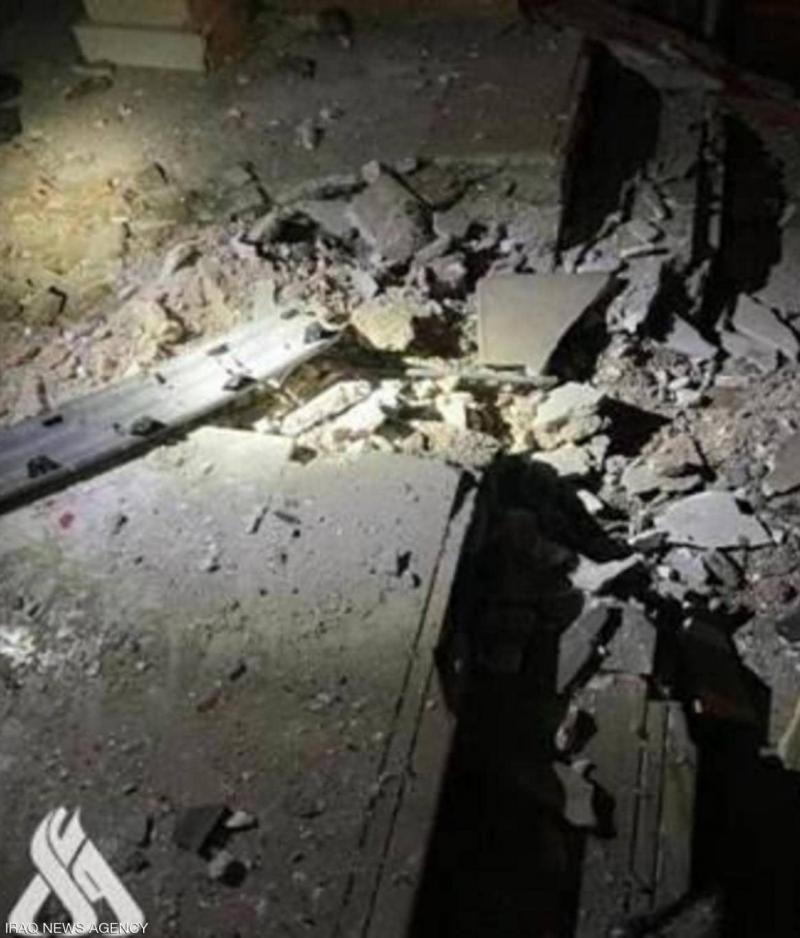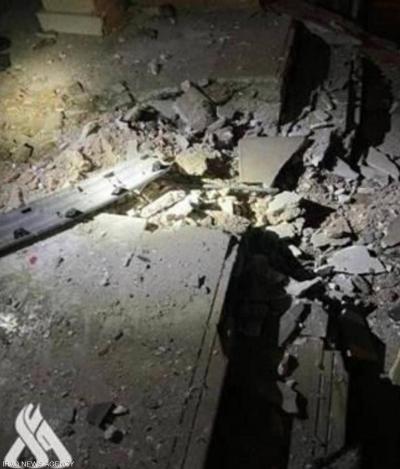Experts and analysts have confirmed to "Voice of America" that the attack on the home of Iraqi Prime Minister Mustafa al-Kadhimi highlights the increasing threat posed by commercially available drones that are easily accessible in a country facing numerous political and field disturbances. Al-Kadhimi survived an unsuccessful assassination attempt involving three small explosive drones targeting his residence in Baghdad early Sunday morning, in an attack that no group has claimed responsibility for, amid rising tensions following the legislative elections conducted a month ago.
Before the attack on the Prime Minister's house, clashes occurred between demonstrators affiliated with Iran-backed factions demanding a recount of the votes and security forces, who resisted their attempts to storm the Green Zone, which houses government headquarters and foreign embassies, including the U.S. Embassy. Political blocs representing the Popular Mobilization Forces, a coalition of Iranian-backed Shiite factions within the armed forces, are rejecting the preliminary results that showed a decline in their seats.
This is not the first drone or missile attack against the Green Zone, which has faced numerous attacks over the past year attributed to no party. However, Washington often blames Iranian-backed factions for these incidents. U.S. officials state that the drones used were the same explosive-laden drones employed by Iranian-backed Shiite militias against U.S. military bases in Erbil and other locations in Iraq.
### Rising Threat
Expert Seth Frantzman views drones as a growing and escalating threat in Iraq, particularly those used by Iranian-aligned groups. He explained that "Iranian-backed militias have the advantage of being able to target any location they choose using this new technology without being detected," noting that Iran has supplied such weaponry to allied groups across the Middle East.
It remains difficult for Iraqi forces to intercept low-flying drones that can be modified to carry explosives. The recent attack on al-Kadhimi's residence, a highly fortified location within the Green Zone, demonstrates how drones can penetrate heavily protected sites defended by U.S.-made anti-missile systems. Frantzman emphasized that "drones can fly slowly and low, evading some air defenses," pointing out that "many air defenses are not designed to cope with the large number of types and sizes of drones."
He added, "There are many questions about whether jamming devices can be used to stop these attacks in the future or whether the government will need systems capable of downing drones."
On the other hand, David Pollock, a former State Department advisor who is now a senior analyst at the Washington Institute for Near East Policy, expressed skepticism that Iran was behind the attack, suggesting it was likely a "reflection of the militias' concern about being marginalized following the recent legislative elections." He told "Voice of America": "There are many factors indicating that Tehran is not directly behind this attack, as it knows that Washington would consider such an act highly provocative, and thus these militias or at least one of them may have decided to carry out the attack independently."
The assassination attempt on al-Kadhimi prompted widespread condemnation from world leaders, including U.S. President Joe Biden, who called for the perpetrators to be brought to justice. In a statement, Biden said, "I have instructed my national security team to provide all appropriate assistance to Iraqi security forces as they investigate this attack and identify those responsible."
However, despite the bold and dangerous nature of the attack, there is little likelihood that the mastermind will be apprehended, especially if it turns out that powerful Shiite militia leaders are behind it. In this regard, Pollock stated, "I don’t think this attack will lead to a dramatic escalation in confrontation with these groups."




